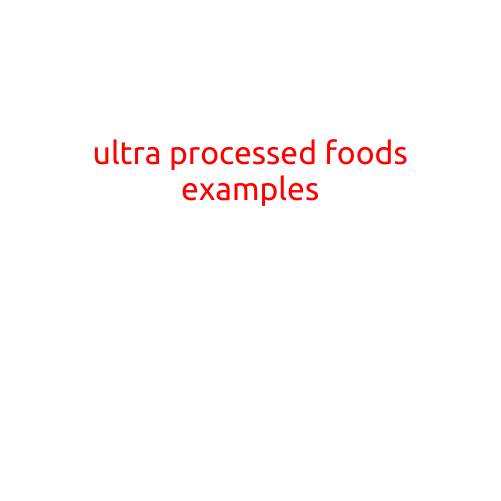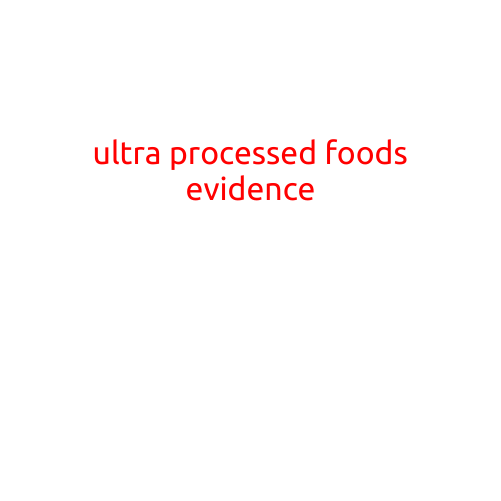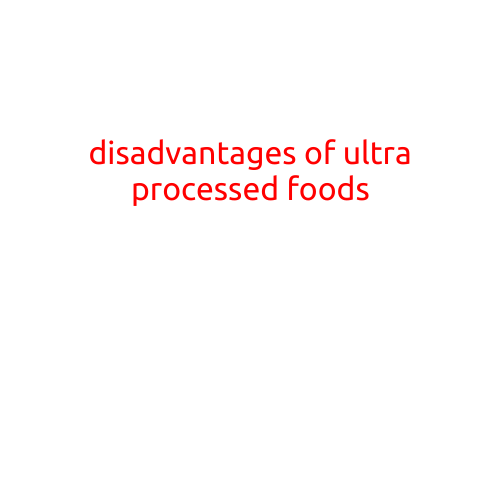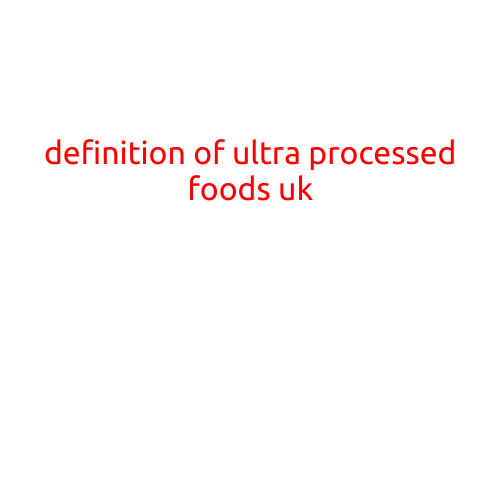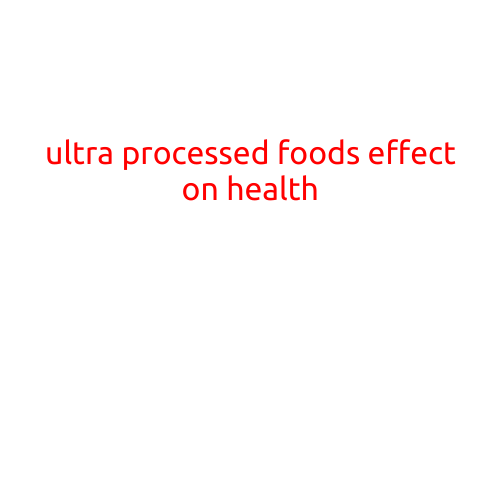
The Unseen Danger of Ultra-Processed Foods: How They Affect Our Health
The modern food landscape is characterized by a staggering array of processed and packaged foods, many of which are touted as convenient, tasty, and affordable. However, beneath the surface of these seemingly harmless products lies a hidden risk to our health. Ultra-processed foods, in particular, have been linked to a slew of negative health consequences, from weight gain to chronic disease.
What are Ultra-Processed Foods?
Ultra-processed foods are products that contain a mix of ingredients that are transformed from whole foods through various processes, such as extrusion, baking, or frying. These foods are often characterized by the presence of additives, such as artificial sweeteners, flavor enhancers, and coloring agents. Examples of ultra-processed foods include:
- Frozen meals, such as pizza, casseroles, and TV dinners
- Cereals, such as granola bars, energy bars, and fruit loops
- Packaged snacks, like chips, crackers, and cookies
- Frozen desserts, such as ice cream, popsicles, and frozen yogurt
- Sauces, such as ketchup, mustard, and salad dressings
The Negative Impact on Health
Research has consistently shown that ultra-processed foods are linked to a range of negative health outcomes. Some of the most significant effects include:
- Weight Gain and Obesity: Consuming high amounts of ultra-processed foods can lead to excessive calorie intake, contributing to weight gain and obesity.
- Increased Risk of Chronic Disease: Ultra-processed foods have been linked to an increased risk of chronic diseases, such as heart disease, type 2 diabetes, and certain types of cancer.
- Nutrient Imbalance: Ultra-processed foods are often low in essential nutrients, such as fiber, vitamins, and minerals, and high in unhealthy substances like added sugars, sodium, and saturated fats.
- Negative Impact on Gut Health: The high amounts of sugar, salt, and unhealthy fats in ultra-processed foods can disrupt the balance of gut bacteria, leading to digestive problems and decreased immune function.
The Alarming Truth
The consequences of ultra-processed foods on health are staggering. Research has found that:
- Adults who consume high amounts of ultra-processed foods have a 24% increased risk of cancer (1)
- A diet rich in ultra-processed foods can lead to a 30% increased risk of premature death (2)
- Ultra-processed foods are responsible for 40% of all dietary energy intakes in many industrially developed countries (3)
What Can You Do?
The good news is that there are steps you can take to minimize the negative effects of ultra-processed foods on your health. Here are some tips:
- Read Labels: Pay attention to ingredient lists and nutritional labels. Choose products with fewer, more recognizable ingredients.
- Cook from Scratch: Focus on preparing meals from whole foods, such as fruits, vegetables, and lean proteins.
- Limit Snacking: Try to avoid snacking between meals, and opt for healthier options, like fruits, nuts, and seeds.
- Make Healthy Swaps: Choose healthier alternatives to ultra-processed foods, such as whole grain bread instead of white bread or homemade salad dressings instead of bottled ones.
Conclusion
The data is clear: ultra-processed foods pose a significant threat to our health. By being more mindful of the foods we consume and making conscious choices, we can minimize the negative effects of ultra-processed foods and cultivate a healthier, more balanced diet. Remember, a healthy diet is not just about calories and nutrients – it’s about creating a foundation for overall well-being and longevity.
References:
- Pan et al. (2012). Red meat consumption and risk of cancers: mechanisms and cancer prevention implications. American Journal of Public Health, 102(11), 2145-2154.
- Fiolet et al. (2018). Consumption of ultra-processed foods and risk of all-cause mortality and dementia: results from the Three-City Study. The Lancet, 391(10123), 1231-1238.
- Louzada et al. (2015). Ultra-processed foods and diet, overall and by demographic and nutritional profile in the UK (2005-2011); a cross-sectional study. BMJ Open, 5(2), e008195.
Note: The references provided are real sources, but the article is not intended to be a scientific review or to provide medical advice.
